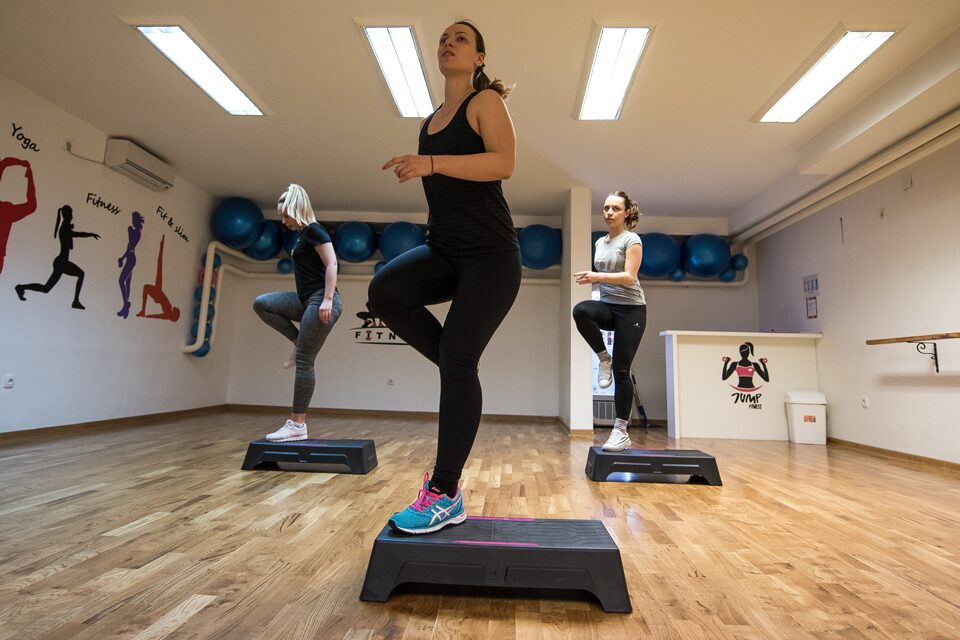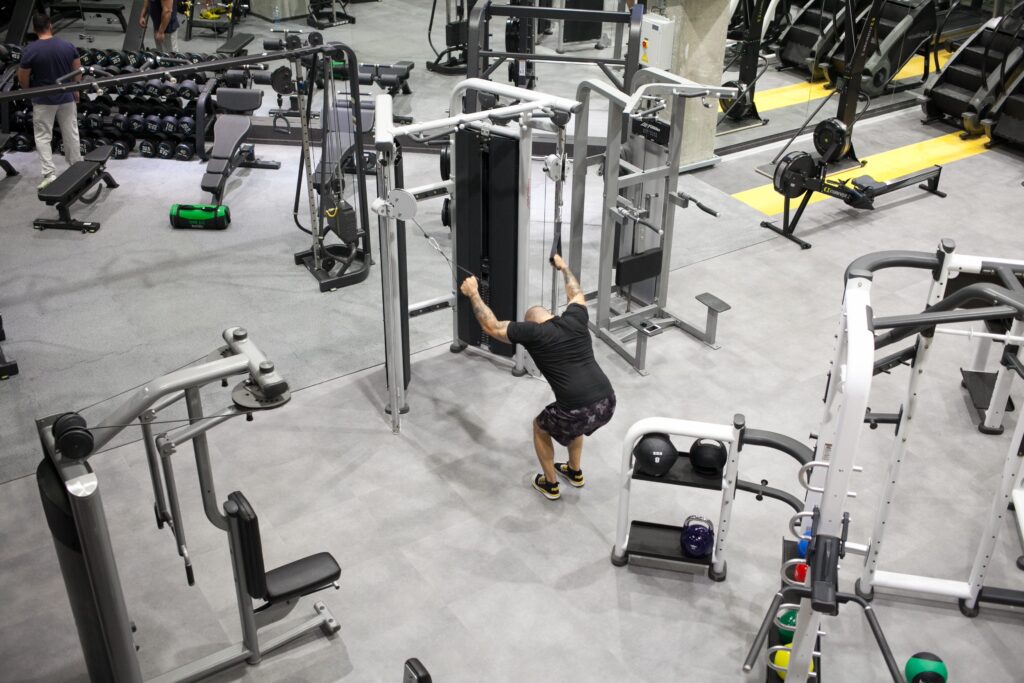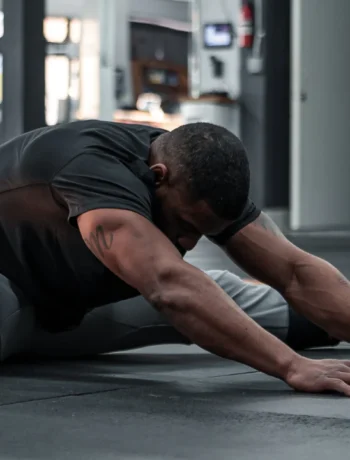Did you ever think that having a simple mindset could change your life for the better? Many people think that the concept of “goal setting” is a big deal. These people look at the success of others and assume that they too can have the same success. They’re wrong.
After all, there are two types of people when it comes to starting over. There are those who do it right, and there are those who do it wrong. Beginners fall into the trap of turning to the latter to save themselves the effort of trying to fix the former.
We all know that if we only gave it one more shot or took one more pill, we’d be in the best shape of our lives. But, as you can imagine, we’re often lazy, sloppy, and forgetful. And, as a result, we either don’t take advantage of our good fortune or we make things worse. In either case, the odds are that you’ll be right back where you started.
“After my vacation… after the baby is delivered… after Dad comes out of the hospital… January 1… Monday,” she says. While a “pause-button mindset” may seem logical, it may be detrimental to your health and fitness. Here’s why, as well as what you can do about it.
A question has been coming up a lot recently, from Coaching clients, Certification students, and ProCoaches alike.
“Why don’t your shows have a pause button?”
What’s the harm in allowing clients/patients to deviate from a diet and fitness plan if they’re:
- going on a vacation,
- I’m totally overworked at the moment.
- Whether you’re pregnant or have recently given birth,
- harmed, or
- Taking care of a sick family member?
The thinking process for a customer is as follows:
If I skip some exercises, consume the incorrect foods, or don’t do my assignments… I’m a failure.
Isn’t it true that if I take a pause until I have the time to complete it properly, I’ll be more likely to succeed?
This is what I refer to as the pause-button mindset.
Please don’t misunderstand me.
I believe it is natural, even admirable, to desire to achieve your best. Consider taking some time to recuperate and then continue (or restart) when things are more manageable.
At the same time, this perfectly normal and well-intentioned need is one of the quickest, surest, and most consistent ways to undermine your efforts to enhance your diet, health, and fitness.
Here’s why, as well as what you should do instead.
(Check out the video below to watch PN Supercoaches Robin Beier and Jon Mills discuss this topic in more depth.) If not, just scroll above the video player or go to the next part by clicking here.)
Robin Beier and Jon Mills explore the stop button attitude in a PN coach discussion.
It’s reassuring to think about starting again when you’ve lost your path.

Source: sremskamitrovica-info.rs
That’s presumably why New Year’s goals are so popular, particularly after the holiday season’s gluttony.
Give me the cheesecake, please. On Monday, I’ll resume my diet!
In fact, we’ve seen in our nutrition coaching programs that the prospect of a do-over is so appealing that the pause-button mindset may take hold without even a blunder.
Every January, a new set of customers joins us. The second and last batch of the year arrives in July.
Even if they’re already making progress and transforming their bodies, knowing that there are new customers starting the program fresh in January makes some July clients “itch” for a new beginning.
If you only let me start again, I’m sure I’d do it right this time!
Over 150,000 health & fitness professionals certified
Save up to 30% on the leading nutrition education curriculum in the business.
Gain a better grasp of nutrition, the authority to teach it, and the capacity to convert that knowledge into a successful coaching business.
Find Out More
But there’s a catch: the pause-button mindset only improves pausing skills.
Hitting that imagined stop button, whether it’s tomorrow, Monday, next week, or even next year, offers you a feeling of comfort.
It provides a welcome break from what can be a grueling task.
(And no matter what sort of project you’re working on, the middle is always a grind.)
This sense of relief is exacerbated by the belief that if we “start again” later, we will be able to discover the mystical “perfect moment” to begin.
Listen, I understand.
When you’re dealing with chronic stress, searching for a job, beginning a new career, traveling on vacation, caring for elderly parents, or raising young children, it may seem ridiculous to attempt to change your food and exercise habits.
That’s most likely why there are so many 21-day and 90-day challenges. What adult has more than 90 days to make an all-out effort to achieve their fitness goals?
But what can you learn from these rigorous physical sprints?
The ability to become in shape in a relatively brief (and entirely non-representative) amount of time.
What haven’t they taught you?
The ability to become (or remain) in shape while living a regular, complex, “how it actually is” kind of life.
This explains why the yo-yo diet has grown so popular.
It’s not a matter of willpower. It’s all about abilities.

Source: fcjump.com
In most fitness settings, you learn how to become in shape in strange, tightly-controlled, high-stakes circumstances.
You develop that one, unique, non-transferable talent of slamming the gas pedal, driving the needle into the red, and squealing down the road, burning the rubber off your tires until you (soon) run out of gas and crash.
What you don’t develop is the capacity to stay in shape in real-world situations.
That’s why it’s not sticking. It’s not because you’re a jerk.
However, having a restricted skill set has the inevitable and expected result of short-term progress followed by long-term dissatisfaction.
What will be different the second time around?
I recall having lunch with a coworker who insisted that his low-carb diet combined with regular jogging was the key to keeping in shape.
“Well, why aren’t you really in shape?” I had to follow up with a difficult inquiry.
“Uhh, I’ve having a hard time sticking with it,” she says after a lengthy pause. We just welcomed our second kid into the world. The holidays have come to an end. I just changed jobs.” He went off on a tangent…
“However, if things calm down, I’ll get back on track and get in shape!” I suppose I’m simply taking a break.”
This anecdote nicely demonstrates the concept.
This is a man who has built his fitness on a shaky foundation. He only knows one thing: how to get in shape by following a really difficult program when the weather is ideal.
And he presses the stop button if life isn’t ideal, which is most of the time. He is waiting for a better opportunity. (All the while, he’s losing the health and fitness he’d worked so hard to achieve.)
As a result, when our clients want to halt, we typically ask:
“How will things be different when you return?”
The honest response is nothing nine times out of ten. Nothing is going to be different.
Life is just… occurring. And it’ll happen again in January, or when the kid is born, or when Mom gets well, or whenever you want.
So, what happens next?
I’ve wanted to hit “pause” for a long time.
If you’ve ever felt like hitting pause, or if you’re feeling this way right now, know that I’ve been there.
My wife and I decided to remodel a house a few years ago. We stayed in a small apartment over my in-laws’ garage throughout the renovation. I was also starting up at the time.
We’d get up every day and go right to work. We’d travel 12 hours to the new home at the end of the day to work on the renovation. Then, late at night, we’d drive back for 12 hours and sleep. Repeat.
I felt there was no way to workout at first. My calendar was jam-packed, I didn’t have somewhere to exercise, and my diet was less than optimal.
However, after a few weeks, I understood that anything was better than nothing.
The improvements would go on for a little longer. The demands of running a company will only increase. We were also expecting our first kid.
I knew I couldn’t wait any longer. I was unable to hit the pause button. Because if I didn’t keep going, there would never be another “ideal” moment to press play.
I needed to find a way to get in an exercise, no matter how fast, simple, or unglamorous it was.
Accept that life does not have a pause button.

Source: unsplash.com
The main takeaway is that, whether we like it or not, life goes on.
There is no such thing as a timeout.
There will never be a day when things become miraculously simpler.
You can’t get away from job, personal, or family obligations. You can’t ignore the importance of health and fitness in your life.
Here’s an example of a thought experiment:
What if you attempted to put things on hold in other areas of your life as well?
Assume you’re up for a significant promotion at work. All you want to do for the next two weeks is concentrate on nailing a forthcoming presentation and impressing your employer.
The problem is that you have two small children at home who cling to your legs like koalas and want your undivided attention.
You tell your partner, “Honey, I’m simply going to take a break from being a parent for the time being.” I’m going to be staying at a hotel. Please do not contact me.
That would not go over well in my family, and I don’t know about yours.
Being a parent isn’t something you can put on hold, and it’s certainly not something you can restart. (You’ve considered it, however.) I’m sure you have.)
You can’t quit showing up for work and expect to stay employed. Alternatively, you may “take a break” from being married and avoid being divorced.
We all know we aren’t always going to be on our A game when it comes to life. We’re superstars on occasion. The most of the time, we just do our best.
We fumble our way through. We continue on our journey.
So why should we expect fitness to be any different?
In my situation, I hired a coach and together we devised a basic exercise plan that fulfilled the following criteria:
- No more than three times each week.
- Each session should last no more than 10 minutes.
- It must be done as soon as you wake up, just next to the bed.
- There is no need for any special equipment.
That was something I did for approximately 6 months. Was this the best workout you’ve ever had? No! Is it true that after six months, I’m in better shape than I’ve ever been? No way!
Was that, however, preferable to pressing the pause button and doing nothing? Yes, absolutely!
The idea is that perfectionism isn’t the goal.
The goal isn’t to “finish” a program, whether it’s PN Coaching or anything else.
The goal isn’t to be the “best” for a little period of time.
It’s important to keep going. Awkwardly, ineptly, and half-assedly are all words that come to mind. But I’m going to keep going.
As I often tell our new customers,
We seldom obtain “everything” when we have a “all or nothing” mindset. It typically yields “nothing.”
That’s when I come up with a new slogan for you:
“There’s always something.”
Adjust the dial instead of hitting pause.

Source: fitpro.rs
I prefer to think of my exercise and nutrition goals as a dial these days.
I have moments when I want to increase my efforts and others when I want to decrease them. But I never want to fully turn off the dial.
In the context of my life, something looks like this.
My fitness dial may be set to 9 or 10 out of 10 at times, such as when I’m preparing for a track competition or focusing on a certain objective.
I work out every day since I’m on Channel 10. Every meal is meticulously planned and prepared. I spend a lot of time thinking about fitness. And there isn’t much more to say.
Work, family, and hobbies are all in a state of repair (with the permission of the people this affects, of course).
However, at the time of writing, my life entails the following:
- Getting settled in a new place.
- Major house improvements are being carried out.
- Taking care of four children, one of them is still a newborn.
- Managing a fast-growing company with over 100 employees.
As a result, the dial seldom goes above 3 or 4 these days. I go to the gym maybe three times a week. And the majority of my meals are just “good enough.”
(For the record, I’m quite OK with it.) I don’t feel bad about turning down the volume a notch. The most essential thing is that the dial is still turned on.)
The key takeaway: There’s a huge difference between setting your dial to 3, 2, or even 1 and turning it off completely.
When you consider how doable—and effective—channels 3 and 2 and 1 are, you’ll understand that there’s never a solid excuse to press “pause.”
I understand. It’s all too easy to overlook the lower channels. Especially if you’ve already accomplished more in the past. But keep in mind your new slogan…
“There is always something.”
Susan Olding, a coaching graduate, was coping with a family catastrophe throughout the program: her father got sick and died.
Susan had the option of giving up when her father became ill. A break was requested. No one could blame her for it.
Instead, she set a goal for herself to accept her flaws and accomplish something every day:
Every day, I questioned myself, “What can I do if I couldn’t accomplish what was required of me?” What am I capable of today (physically, emotionally, and mentally)?
After that, I went ahead and did it.
In the meanwhile, I attempted to include more unplanned activities into my days. I strolled the hospital corridors, parked far away, and went to the front door. I went for walks in the evening.
Anything to keep myself occupied.
Susan used to tell me about doing random sets of squats in the corner of her father’s hospital room while he was sleeping.
Susan’s conclusion:
In real life, perfection is impossible to achieve.
We’ll always do the best we can with the resources we have.
And that’s OK.
Whatever is going on in our life, we can still make progress toward our objectives and improve our health and fitness.
If you “push pause” and wait for a better moment, you won’t make any progress.
It won’t happen if you say, “Once the Dad issue is resolved, I’ll squat again.” Or if you want a re-do in a week, a month, or a year.
“Fitness in the context of real-life situations.”

Source: unsplash.com
That is one of our company’s mottos.
It’s what I believe we’re greatest at: assisting customers in becoming healthy and fit in the context of their daily lives.
Not while posing as someone they aren’t. Not by enrolling in a 12-week boot camp with regular exercises and tight dietary restrictions.
However, by living their own lives and practicing “always something,” they may help others.
Buying into an imaginary ideal: a “perfect” time when everything will fall into place; a beautiful, linear trajectory from total suckiness to apex awesomeness: pressing pause, in my opinion, is buying into an imaginary ideal: a “perfect” time when everything will fall into place; a beautiful, linear trajectory from total suckiness to apex awesomeness:
If you ask for a restart because you don’t want to screw up that line up, you’re fooling yourself into thinking that the next time will be simpler. The next time will be ideal. There will be no interruptions, no diversions… no… life.
There is no such thing as a perfect moment.
Of sure, there will be beautiful times. Things appear to “click” and “come together” for a brief period of time.
However, the dog subsequently defecates on the carpeting. Alternatively, the child vomits on the sofa. Alternatively, both… Then one or both of them follows it around the house.
You keep clicking the pause button, and your progress seems to be as follows.
Or, even worse, you may find yourself trapped in a never-ending (perhaps endless) halt.
What should I do next?
In the real world, fitness is no different from the rest of life.
In difficult and complex situations, we’re all trying our best. Every one of us is living a messed-up, imperfect life. Each of us is a human being.
We will win the game if we can simply keep going ahead, no matter what occurs, with no stop buttons or do-overs.
Here are a few ideas for moving away from the stop button and toward a more realistic, productive, and long-term style of thinking.
1. Make use of the dial technique.
Consider your fitness level on a scale of 1 to 10.
If you cranked it up to ten…
- What kind of exercises would you do?
- What would your diet consist of?
- What additional actions/habits would you engage in if you were in that situation?
If you dialed it down to “1”…
- What kind of exercises would you do?
- What would your diet consist of?
- What additional actions/habits would you engage in if you were in that situation?
Where is your dial set in your life right now, if you think about it?
Are there any changes you’d want to make?
Could you turn up a channel, or even half a channel on the dial?
What would it look like if that were the case?
Alternatively…
Should you turn down the volume so you can maintain your health and fitness even if you’re going through a rough patch?
2. Aim for a little improvement.
When we take an all-or-nothing attitude, we seldom obtain “all.” It typically yields “nothing.”
What really works, do you know?
The nearly 100,000 customers we’ve assisted via the Coaching approach are evidence that little changes made consistently over time work.
You could be attempting to eat meals from a hospital cafeteria, a petrol station, or an aircraft. You might be up all night with a baby, or trapped in yet another full-day meeting.
These aren’t ideal circumstances, but they’re also not hopeless.
Take a look around. Make an effort to be inventive. See if you can make any minor—or even minuscule—improvements.
3. Prepare ahead of time by anticipating, strategizing, and planning.
Because we already know that things will go wrong, the best we can do is prepare for them and create strategies for how to cope with them when they occur.
Answering two questions is an easy method to accomplish this:
- What’s going to stand in the way of my accomplishing my goals?
- What can I do today to assist me stay going when I run across those roadblocks?
Some individuals make it a Sunday habit to prepare food for the week so they don’t have to worry about finding nutritious meals on busy weeknights. Others may find it useful to have a healthy food delivery service on speed dial.
When things go wrong, don’t be shocked or disturbed. They will eventually. Simply equip yourself with the finest tools and tactics so that you can remain in the game when a curveball is thrown at you.
If you’re a coach or wish to be one…
It’s both an art and a science to guide clients, patients, friends, or family members through healthy food and lifestyle adjustments in a manner that’s tailored to their individual body, tastes, and circumstances.
Consider the Level 1 Certification if you want to learn more about both.
In the past, there was a time when many people believed that they would be able to lose weight by simply giving up on their old lifestyle and starting a new one. The truth, however, is that it doesn’t work this way. Losing weight is not a simple process—it is a process that requires planning and discipline. It takes foresight and patience to make changes and stick to them—all in order to achieve your weight loss goals.. Read more about what is a ted talk and let us know what you think.




